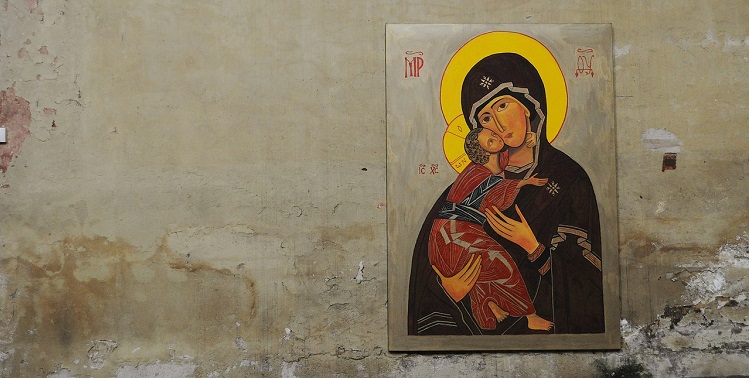SCOTUS to Clarify Scope of Ministerial Exception

The U.S. Supreme Court recently granted certiorari in Our Lady of Guadalupe School v. Morrissey-Berru and St. James School v. Biel. The cases involve the ministerial exception, a First Amendment doctrine that bars courts from adjudicating employment-related cases brought by “ministerial” employees against their religious employers.
Facts of Our Lady of Guadalupe School v. Morrissey-Berru
Agnes Deirdre Morrissey-Berru brought a claim under the Age Discrimination in Employment Act (ADEA) against her former employer, Our Lady of Guadalupe School (the “School”). Relying on the U.S. Supreme Court’s decision in Hosanna-Tabor Evangelical Lutheran Church & School v. EEOC, 565 U.S. 171 (2012), the Ninth Circuit held that Morrissey-Berru was not a “minister” for purposes of the ministerial exception and could pursue her ADEA claim.
“Unlike the employee inHosanna-Tabor, Morrissey-Berru’s formal title of ‘Teacher’ was secular,” the court held. “Aside from taking a single course on the history of the Catholic church, Morrissey-Berru did not have any religious credential, training, or ministerial background. Morrissey-Berru also did not hold herself out to the public as a religious leader or minister.” While the Ninth Circuit acknowledged that Morrissey-Berru did have significant religious responsibilities as a teacher at the School, it further found that an employee’s duties alone are not dispositive underHosanna-Tabor‘s framework.
Facts of St. James School v. Biel
Kristen Biel taught fifth grade at St. James Catholic School in Torrance. In addition to teaching religion classes, Biel was required to incorporate Catholic values and traditions in all the other subjects taught in her classroom, took part in school-based religious worship, and gave her students religious tests. When her contract was not renewed, Biel filed suit. She alleged that St. James’s decision not to renew her contract violated the Americans With Disabilities Act (ADA), arguing that her breast cancer diagnosis was the true reason she was not asked to return.
Concluding that “[a]t most, only one of the fourHosanna-Taborconsiderations weigh[ed] in St. James’s favor,” the Ninth Circuit held the ministerial exception did not apply. The court found that Biel’s religious duties were, taken alone, insufficient to invoke the ministerial exception, and that the exception was ordinarily applied to those with “religious leadership” roles while “Biel’s role in Catholic religious education” was “limited to teaching religion from a book.”
Issues Before the Supreme Court
The Ninth Circuit’s narrow construction of the ministerial exception is not in line with the other federal courts of appeal, which have found that an employee’s ministerial function should be the key focus. As St. James Catholic School argued in its petition for certiorari, “The split of authority is thus deep, acknowledged, and—absent this Court’s intervention—irreconcilable.” The justices have agreed to consider the following question:
“Whether the First Amendment’s religion clauses prevent civil courts from adjudicating employment-discrimination claims brought by an employee against her religious employer, when the employee carried out important religious functions.”
Oral arguments have not yet been scheduled.
Previous Articles
SCOTUS Decision in Bowe v. United States Is First of the 2026 Term
by DONALD SCARINCI on February 5, 2026
In Bowe v. United States, 607 U.S. ___ (2026), the U.S. Supreme Court held that Title 28 U.S.C. § ...
SCOTUS Rules State Can’t Immunize Parties from Federal Civil Liability
by DONALD SCARINCI on January 29, 2026
In John Doe v. Dynamic Physical Therapy, LLC, 607 U.S. ____ (2025) the U.S. Supreme Court held that...
Supreme Court to Address Racial Discrimination in Jury Selection
by DONALD SCARINCI onWhile the U.S. Supreme Court has concluded oral arguments for the year, it continues to add cases t...
The Amendments
-
Amendment1
- Establishment ClauseFree Exercise Clause
- Freedom of Speech
- Freedoms of Press
- Freedom of Assembly, and Petitition
-
Amendment2
- The Right to Bear Arms
-
Amendment4
- Unreasonable Searches and Seizures
-
Amendment5
- Due Process
- Eminent Domain
- Rights of Criminal Defendants
Preamble to the Bill of Rights
Congress of the United States begun and held at the City of New-York, on Wednesday the fourth of March, one thousand seven hundred and eighty nine.
THE Conventions of a number of the States, having at the time of their adopting the Constitution, expressed a desire, in order to prevent misconstruction or abuse of its powers, that further declaratory and restrictive clauses should be added: And as extending the ground of public confidence in the Government, will best ensure the beneficent ends of its institution.





